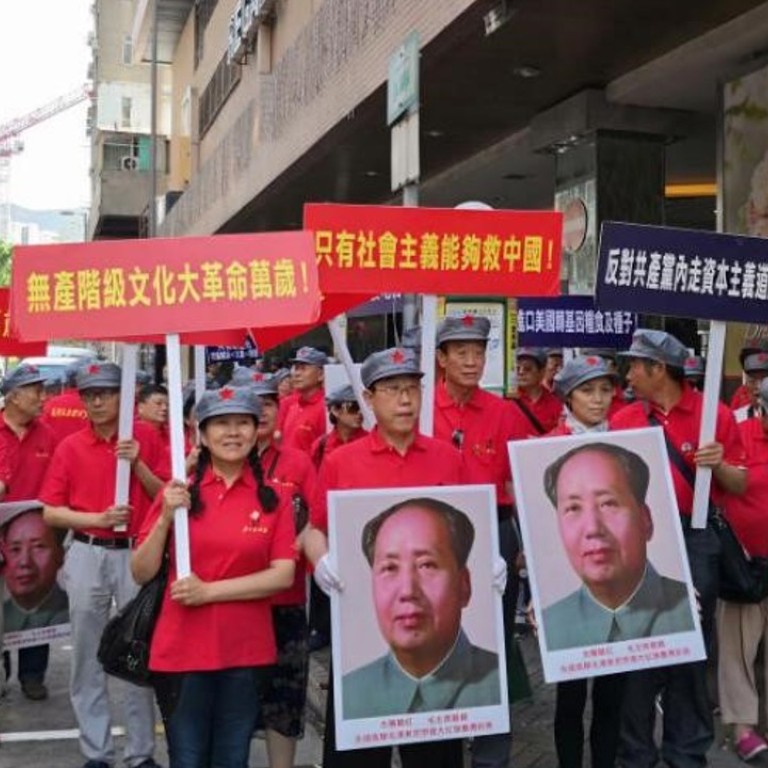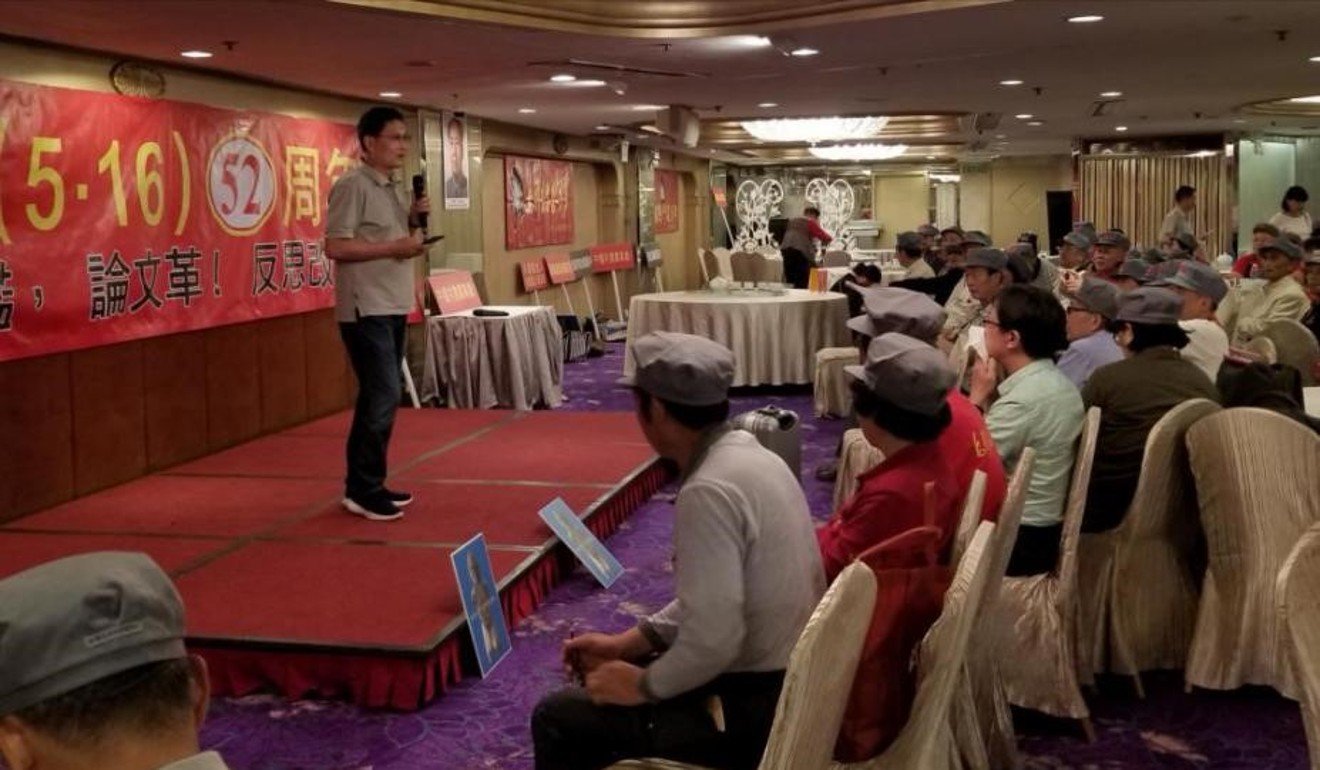
The last Maoists in China find refuge in capitalist Hong Kong
Suppressed on the mainland, Mao Zedong’s torch-bearers head to the southern city to mark the anniversary of the Cultural Revolution
Hong Kong may be the heartland of capitalism but it is also the improbable last redoubt of the unlikeliest of Chinese dissidents – China’s band of Maoists.
The city has become the only place where the self-proclaimed holdouts of Mao Zedong’s cause and staunch opponents of market economics can keep the revolutionary flame burning in public.
The Maoists claim to be the true keepers of the late chairman’s faith and are nostalgic for the Cultural Revolution, a destructive decade that the Chinese government now describes as a period of “turbulence”.
Sticking to Marxism is ‘totally correct’, Xi tells China’s communists
Chen Hongtao, one of dozens of mainland Maoists who headed across the border last week for a demonstration to mark the 52nd anniversary of the start of the Cultural Revolution, said the Chinese authorities had suppressed such gatherings.
The march was organised by Hong Kong’s Mao Zedong Thought Society, an organisation registered in Kowloon City district.
“This [march] is approved and protected by the Hong Kong police. But it’d be impossible to think of doing the same on the mainland,” Chen said.
“Some comrades from the mainland have failed to make the trip due to all sorts of pressure and restrictions.
“It’s very peculiar for a country that claims to be a socialist nation ruled by the Communist Party.”
Those who did make it crossed the border in blue Mao-era military uniforms and waving hammer-and-sickle flags, according to a video circulating on social media.

Despite Beijing’s official line that Maoism is a central part of its ideology, hardline Maoists are very critical of the central government’s policies, blaming the market reforms launched after Mao’s death for widening the country’s wealth gap and rampant corruption.
Chen also lashed out at Beijing’s high-profile commemorations of the bicentenary of Marx’s birth, which included President Xi Jinping saying in a speech the party had inherited and innovated with Marxism.
“[The government] never mentions that the core of Marxism is class struggle, or the ultimate mission of the Communists is to bring an end to private ownership,” Chen said.
Why Beijing isn’t Marxist enough for China’s radical millennials
But what Maoists see as policy inconsistency, the party promotes as central to its future.
Addressing around 100 Hong Kong delegates and advisers to the national legislature at Beijing’s liaison office on Sunday, Qu Qingshan, deputy head of the party’s history and literature research institute, said Beijing’s change of ideology was key to its survival.
“One problem with the Soviet Communist Party was its lack of new ideology and theory after Vladimir Lenin and Joseph Stalin. But the Chinese Communist Party has built up its own ideology to meet the changing times and social conditions,” Qu said.


